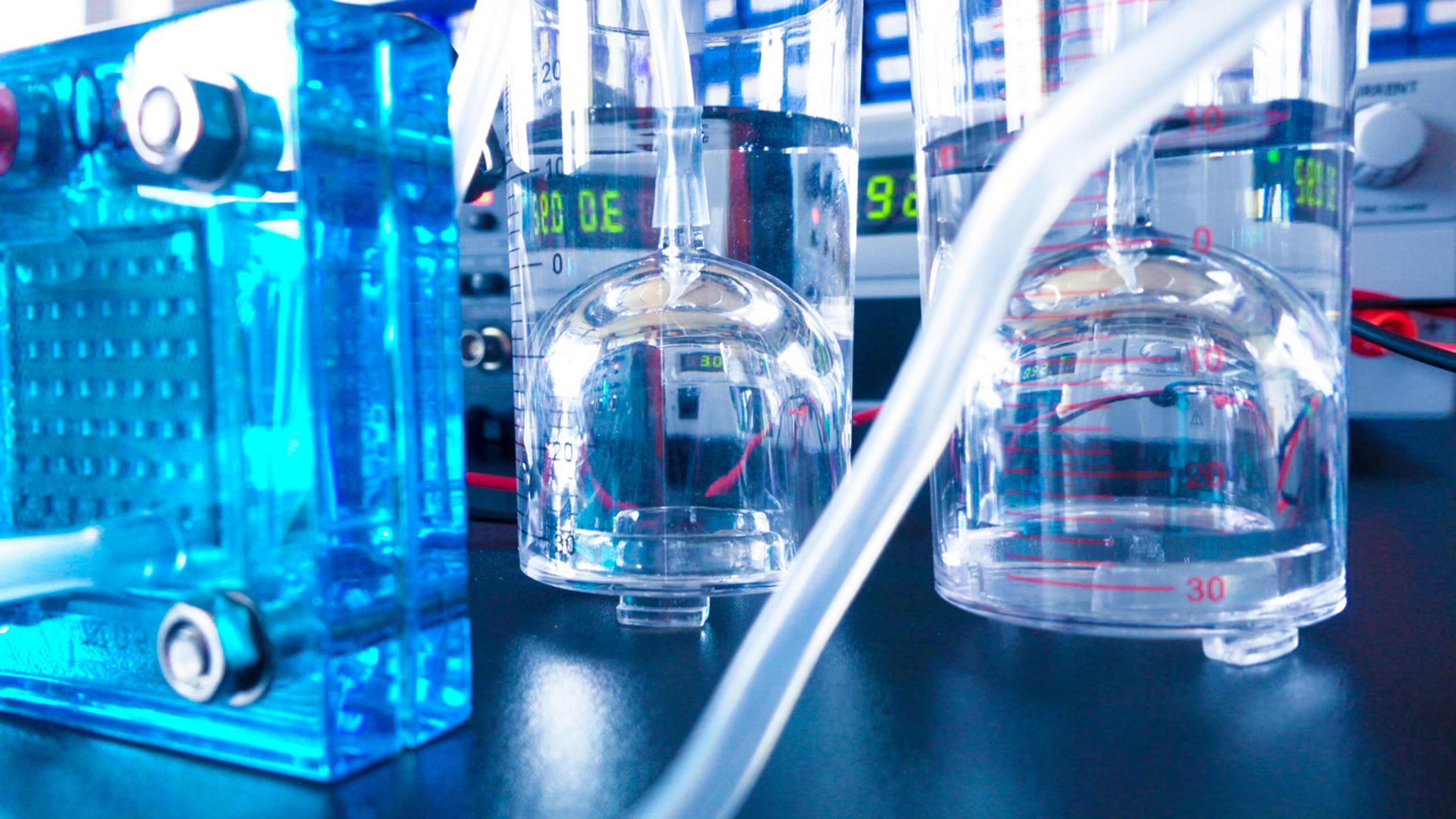CLOSING THE LOOP: Company makes clean fuel from non-recyclable plastics
12/20/2021 / By Ramon Tomey

Non-recyclable plastics are ubiquitous waste materials in all parts of the globe. But one company has found good use for these materials by converting these into fuels for airplanes and ships. Moreover, the company’s resulting marine and aviation fuels emit 75 percent less carbon dioxide than their conventional counterparts.
British company Clean Planet Energy (CPE) is looking to give non-recyclable plastics a new purpose. It aims to convert more than 1 million tons of non-recyclable plastic waste every year into clean-burning fuels and other low-carbon products. CPE currently has two ecoPlants under construction and another four being developed. The plants can process 20,000 tons of plastic waste yearly.
According to its website, CPE accepts plastic waste not commonly processed in conventional recycling facilities. Its ecoPlants process high-density polyethylene (HDPE), polyvinyl chloride (PVC), low-density polyethylene (LDPE), polypropylene (PP), polystyrene (PS) and other kinds of plastics. The company also accepts plastics containing up to 15 percent contaminants for processing. CPE remarked on its site that it can accept polyethylene (PE) plastic bottles which are the easiest to recycle, but the company chooses not to as most facilities readily handle them.
Using a proprietary process, CPE converts these plastics into fuels and other products. It explained that for every ton of non-recyclable plastic processed by an ecoPlant, about half that amount is converted to EN15940 premium diesel fuel. Twenty-five percent is turned into naphtha, an ingredient in manufacturing other products, while seven percent becomes fuel oil for heavy machinery. Carbon black used to color automotive tires becomes the remaining solid byproduct of the processed plastic.
Hydrocarbon Engineering reported on March 23 that CPE unveiled two new ultra-clean fuels for marine vessels. The Clean Planet Oceans fuel boasts 75 percent lower carbon emissions compared to their fossil fuel counterparts. Furthermore, the marine fuel also boasts lower nitrogen dioxide (NOx) and sulfur dioxide (NOx) emissions. NOx and SOx are some of the common pollutants produced from the burning of fossil fuels.
CPE fuels from recycled plastics are more environment-friendly
CPE Chief Technology Officer Dr. Andrew Odjo said: “Whereas cars are moving to electric, the lifespan of large vessels means we’ll be stuck using fossil fuel engines for many years to come. By using non-recyclable waste plastics and a feedstock for fuels in these industries – we can reduce the daily [carbon dioxide] emissions by 75 percent, keep fossil-oil in the ground and win valuable time in the world’s battle to hit net-zero carbon emissions.”
Odjo elaborated on how CPE’s fuels can help address marine vessels’ pollutant emissions. Under current International Maritime Organization regulations, a ship with a scrubber onboard to filter emissions can emit 35,000 parts per million (ppm) of sulfur. Vessels without a scrubber have a lower sulfur emission threshold of 5,000 ppm. CPE’s marine residual fuel contains only 35 ppm of sulfur, while its marine distillate fuel has a lower sulfur content of 3 ppm.
“This means that ships using [CPE] marine distillate fuel can reduce sulfur pollution by over 1,500 times compared to ships using fossil fuel without a scrubber, and by more than 10,000 times compared to ships with a scrubber,” he commented. (Related: Dual-function catalyst produces hydrogen fuel while cleaning up polluted water.)
Earlier, CPE announced in February that it would develop clean fuel for aircraft using non-recyclable plastics. The Clean Planet Air fuel is designed as a direct replacement for existing fossil-based jet fuel, but having sulfur levels way lower than conventional counterparts.
CPE Chief Executive Officer Bertie Stephens remarked: “Currently, there is no viable commercial alternative to fossil fuel-led aviation, so until there is – our strategy is to assist in the reduction of carbon emissions by producing alternative and greener fuels.”
Odjo further commented that the Clean Planet Air aviation fuel reduces NOx and SOx emissions by 850 times, aside from cutting down on carbon emissions. The firm’s CTO ultimately lauded CPE’s capability to process plastic waste into cleaner fuel alternatives, hitting two birds with one stone. “The CPE technology is able to handle plastics that simply cannot be mechanically recycled today, therefore also providing a solution to the waste-plastic crisis,” Odjo said. (Related: Turning plastic into oil would eliminate plastic waste and stick it to greedy oil companies.)
Visit Environ.news to read more about novel ways to reduce plastic waste in the environment.
Sources include:
Submit a correction >>
Tagged Under:
aviation fuel, Bertie Stephens, breakthrough, carbon emissions, Chemistry, Clean Planet Energy, discoveries, Dr. Andrew Odjo, ecoPlants, energy, inventions, marine fuel, materials science, nitrogen dioxide, non-recyclable plastic, plastic waste, recycling facility, sulfur dioxide, waste recycling
This article may contain statements that reflect the opinion of the author
RECENT NEWS & ARTICLES
Physics.News is a fact-based public education website published by Physics News Features, LLC.
All content copyright © 2018 by Physics News Features, LLC.
Contact Us with Tips or Corrections
All trademarks, registered trademarks and servicemarks mentioned on this site are the property of their respective owners.




















